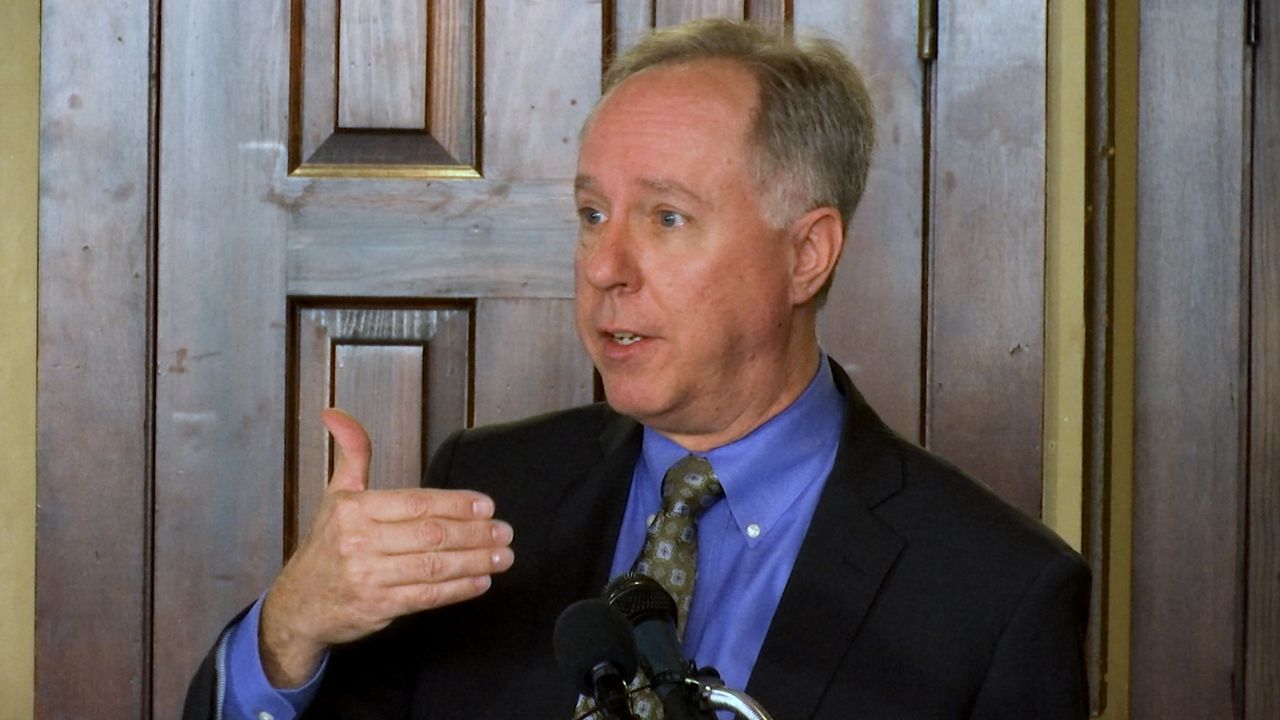MILWAUKEE — With budget talks ongoing inside the state Capitol, funding to help support the Southeast Wisconsin Professional Baseball Park District and keep the Milwaukee Brewers in the Badger State hasn’t been a focus. However, the issue has not been forgotten by lawmakers either.
Not much progress has been made because lawmakers are still negotiating over shared revenue for local communities as Democrats and Republicans work to pass a plan ahead of the state budget this summer.
Previously, Gov. Tony Evers called for an investment of $290 million using the state’s projected budget surplus to ensure the Brewers stay in Wisconsin through 2043, which would amount to a 13-year extension.
The governor said he believes it is a statewide issue and does not want to burden the city or county with additional costs, especially as municipalities struggle to make ends meet. During a press conference this week, the governor pointed to the shared revenue issue as a reason why the state should chip in more funding.
“We have a good plan using some of the money we have,” Gov. Evers told reporters on Wednesday. “[On] one hand we’re saying, everybody is saying the municipalities need more money for all sorts of reasons and then, ‘Oh, by the way, we’re going to take this money away,’ that doesn’t cut it with me.”
For Republicans, the deal has been labeled “dead” and a so-called “nonstarter,” which proved true when GOP members on the Legislature’s Joint Finance Committee stripped the item from the governor’s budget proposal, along with hundreds of others, earlier this month.
The biggest point of contention between the political parties isn’t whether funding should happen, but over the best way to go about it.
“I don’t have a problem investing the money that we would lose anyways, if the team leaves, as an incentive to help keep them here [as] we did with the Bucks, so I think there is a structure where good people could sit down together and say, ‘Okay, local partners, the biggest impact is on southeastern Wisconsin, you probably need to be at the table,’” Republican Assembly Speaker Robin Vos explained during a Milwaukee Press Club event last week.
Vos voiced criticism of the governor for not consulting with Republicans and said he would prefer a plan similar to how the Fiserv Forum project was handled under former Gov. Scott Walker.
“The reality of us having a stadium that we own, and the fact that another team wouldn’t come here, means we have a strong incentive to keep them just as the state because we own this asset,” Vos explained. “The other thing I think people don’t realize is every single time a professional athlete, who doesn’t live in Wisconsin, plays a game here, that percentage of their salary stays here.”

Democrats, who also know how dire the financial impacts could be if the team were to leave Wisconsin, feel that is reason enough for the state to contribute a larger share now, given the projected surplus of more than $7 billion, to have peace of mind going forward.
“Everybody has talked about how we have to do it with great presence around the issue of onetime costs. This is a onetime cost,” Gov. Evers said. “We can give the money to the Brewers, not the Brewers themselves but the group that runs it, and it’ll be cheaper now than it will be later.”
Regardless of how long it may take for lawmakers to hammer out a deal, the Brewers aren’t going anywhere, anytime soon. The team’s current agreement has them in Wisconsin through 2030, so the conversations over funding are about what happens after that.
As part of the agreement with the team, the District must maintain the facility. Since the local sales tax ended in 2020, the District has raised concerns it cannot afford to meet its obligations with the team, which could relocate as a result.


